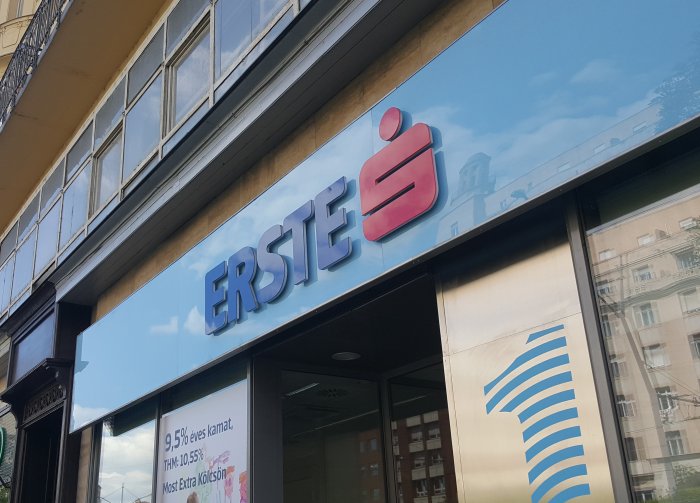Market Talk: Temp Recruitment Agencies say Labor Markets Busier Than Pre-Pandemic

Image by Wright Studio /Shutterstock.com
During the pandemic, businesses were more inclined to let temporary workers go first, which flooded the labor market with talent. Now the economy is recuperating, and the labor shortages are back. Some of the most prominent players in the field tell the Budapest Business Journal about the significant factors keeping people on the move.
BBJ: How has the demand for temporary workers in the job market changed over the past few years?
Zoltán Czellecz: Demand for our services has been steadily growing yearly, bar the downturn during the COVID-19 months. In this candidate-driven market, employers prioritize the ability to identify and attract the right talent; the form of employment is secondary.
Viktor Göltl: Hungary’s temporary employment market has experienced significant fluctuations over the past three years due to the COVID-19 crisis and the war in Ukraine. However, these fluctuations are characteristic of the industry, and overall, the market has been making slight gains in volume.
Ákos Jáhny: We saw a peak in the pre-COVID-19 period; it decreased during the pandemic. However, since 2022, we have seen an impressive increase, and now we observe that the demand level roughly surpasses 2019.
Csongor Juhász: The economy has recovered from the COVID-19 recession; companies are employing a large proportion of temporary workers again. The labor shortage has become a serious problem again in almost all industries, and demand for labor has grown beyond the COVID-19 levels. Agencies providing temporary workforce can be great partners in answering such employment pressures.

Zoltán Czellecz, CEO, Work Force Ltd
Péter Laczi: The demand for our services has changed positively in recent years. As recruitment becomes more complex, the need for this activity is increasing. The introduction of the ability to employ third-country nationals has also contributed significantly to this growth and helps to meet staff demand. Without this approach, securing staff would be impossible, so this has been an essential step in boosting economic performance and retaining existing jobs.
Csaba Ottó: The turbulent economic changes of recent years (COVID-19, raw material shortages, and war) have resulted in booms and busts in the labor market, which have been felt in the temporary agency market too. We have had to persist in this changing world in the previous years and help both our partners and temporary workers with progressive and new solutions.
László Zsilka: More people realize the potential of temporary employment; however, the constantly-changing labor market should not be forgotten either, as this is primarily the reason why the sector is growing year by year.
Labor shortages and the brain drain encourage employers to keep staff numbers up. In short, demand has adjusted to the trends.

Viktor Göltl, CEO, WHC HR Services
BBJ: What industries or sectors drive the demand for temporary workers, and why?
ZCz: The automotive and electronics sectors, and some processing industry segments, have experienced significant growth through greenfield investments and production extensions. There is high demand for workers in these areas. Newly-established businesses often lack local recruitment expertise.
VG: One of the biggest pull factors of the temporary employment industry is blue-collar recruitment in large numbers.
ÁJ: The biggest market is clearly the automotive industry and its suppliers, as well as other labor-intensive fields such as assembly, the chemical industry, and other manufacturing plants.
CsJ: Manufacturing and production still see the highest demand, including the automotive and processing industries. Just as before the pandemic, the labor shortage is present in virtually every geographic region and sector in Hungary, which means there is a great demand for temporary workers across the board.

Ákos Jáhny, CEO, Get Work Trend Kft
PL: In electric battery manufacturing, the automotive industry has placed significant orders with HR service providers in recent months. The reasons include backlogged orders, fierce competition in the electric car market, and the need to meet these demands as soon as possible, which are stimulating and invigorating production.
CsO: The automotive, processing, and electronics industries need the most significant numbers of workers. Recently, increased demand arose in the food industry as well. Also, more small enterprises have been turning to temporary agency work, due to the shortage of quality Hungarian workers.
LZS: The largest employers have the greatest demand. The benefits package matters, which is not directly proportional to the company’s size.

Csongor Juhász, managing director, Prohuman
BBJ: How did the pandemic affect the temporary staffing industry, and what changes have you seen in demand or types of positions being filled?
ZCz: We have noticed that the demand for our services has exceeded pre-pandemic levels. This market trend is driven primarily by long-term factors, such as the aging population, a mismatch between education output and employer requirements, and a lag in upskilling the active workforce. Consequently, we have observed a growing trend among employers to source candidates from the APAC [Asia-Pacific] region, tapping into vast talent pools with highly competitive technical and language skills.
VG: The impact of COVID-19 essentially caused an immediate 20-30% drop in temporary employment, at least in the case of blue-collar jobs. However, there was a quick rebound after the lockdown restrictions were lifted. Since then, the market has recovered, and labor demand has been consistent.
ÁJ: Companies that had to reduce their workforce opted to release temporary workers as a first move. The temporary staffing industry clearly suffered from the effects of COVID. Afterward can see that the economy has responded to the challenges by more sectors turning to temps to have flexible staffing in all kinds of positions.
CsJ: The complete hospitality and tourism industry shutdown during the pandemic caused an oversupply of labor. When the economy restarted, a severe labor shortage emerged again. One lesson learned from COVID-19 is that companies that did not let go of their employees during lockdowns but kept them in some form fared significantly better. They found it easier to restart. Another learning was that opting for temporary employment can be advantageous in uncertain times for both employers and employees.
-NET.jpg)
Péter Laczi, chief operating officer, Pannon-Work
PL: The COVID-19 pandemic brought a significant economic downturn, which had a major impact on the performance of the temporary staffing sector. There were substantial downsizings and large-scale shutdowns. We tried to keep as many people at work as possible. We had successes in this, and the companies that partnered with us recovered much more quickly from this challenging period, retaining valuable labor and a competitive advantage over those that chose to downsize. It is fair to say that the slowdown was short-lived, and from late summer/early autumn in 2020, a sustained increase began, with a steady rise in demand for staff.
CsO: COVID-19 brought many changes to people’s lives. Temporary agency work is the best indicator of economic crises, as the first thing to stop is the demand for temps, and the first thing to shrink is the size of the temporary staff. Our partners were hesitant to let go of their hard-won temporary staff, but it was a sensible decision to keep their own workers. In contrast to the economic crisis of 2010, we saw that the Hungarian workers made redundant due to COVID-19 could soon find new employment. After the second wave of the virus, our services have become more valuable because of their temporariness.
LZs: Apart from the initial shock, the staffing requirements have not changed. The decrease was caused by the fact that certain businesses were shaken to their foundations, so they had to make layoffs to survive. And, as we know, the “borrowed stock” is always reduced first.

Csaba Ottó, CEO, Man at Work
BBJ: What are some benefits of using a temp agency for employers and job seekers, and how do those benefits compare to other staffing solutions?
ZCz: Let us narrow the scope to the benefits of utilizing certified temp agencies. Beyond access to the broadest pool of candidates (locally and internationally), the accredited status offers user companies a sense of security throughout the cooperation. It ensures a high level of professionalism, and financial guarantees provide an extra layer of safety in this critical aspect of operations.
VG: A temporary employment agency provides a service through which labor-seeking employers and job-seeking employees can be contacted quickly. Labor leasing is helpful for both sides to familiarize themselves with one another before entering a direct employment contract.
ÁJ: For employers, it is an excellent opportunity to outsource their recruitment and selection; there is no need to maintain an internal team. When employees enter companies through temporary staffing, it may be a first step to becoming part of permanent staff if they perform well.
CsJ: Large staffing agencies have comparative cost advantages in several areas, such as the ability to advertise at a lower price due to their high volume and the fact that they can continuously perform selection processes in their local offices for multiple companies and their databases contain significantly more job seekers than any single client. These advantages are even more critical in the current and increasingly challenging labor market. It is important to add that only licensed temporary employment agencies are authorized to bring in foreign workers from third countries. As a result, employers working with a licensed agency have the additional advantage of recruiting workers externally to the European Union in a streamlined and expedited process.

László Zsilka, chief marketing officer, HSA Group
PL: From the employees’ point of view, I would highlight legal security. An essential element is that they can change jobs with our help; they have a wide range of options.
If employment conditions in a particular job are not suitable, they have the option of applying for another position. They can rely on our expertise and experience in the labor market to take on a job that matches their qualifications and skills. For our partners, outsourcing the recruitment process offers a clear advantage, relieving the HR department of these challenging tasks. “Borrowers” receive people and services, including administration and compliance with legislation, as we keep track of changes and keep ourselves up to date. We deliver solutions to labor shortage problems, drawing on more than three decades of experience.
CsO: Temporary agency work in 90% of cases means blue-collar labor force. It is our mission and task to support both sides to ensure that the right workforce is matched with the right partner in the right position. We are constantly processing data from our experience over the past two and a half decades and providing feedback to our employees and partners. We use this data to improve our processes and to offer innovative solutions for both sides. Our skilled team is always looking for where and how to find the required labor force based on market needs. Last year, we were one of the first companies to obtain the status of a certified temporary employment agency, which entitles us to employ not only neighboring but also third-country nationals as temporary workers. We turned 25 this year, meaning we have 25 years of knowledge and experience. But like every 25-year-old at the height of their powers, we aim to improve even further so that our clients are satisfied and our employees are happier.
LZs: At a professional temporary staffing agency, the job seeker does not and should not feel they would be working in an atypical form of employment. Our partner companies and we strive to ensure that there is no difference at all between permanent employees and staff on loan. Temporary staff benefits large employers as they do not have to allocate their own resources for recruitment, administration, or payroll.
BBJ: Is there anything else you would like to add?
PL: Unfortunately, it is also true to say that some industries that have performed well in the past (retail, hospitality, tourism, construction) aside from the large companies are finding it difficult to recover, and there is a significant “roller-coaster effect” in their performance. There is a high level of mistrust among workers in these sectors. Still, here, too, we see that those who have adapted to the changed circumstances are more resilient to obstacles and economic difficulties. In the coming years, preparedness will play an important role, as will acute awareness of the overall situation to adapt to market needs and to make quick decisions.
Our Market Talk Panel
• Zoltán Czellecz, CEO, Work Force Ltd
• Viktor Göltl, CEO, WHC HR Services
• Ákos Jáhny, CEO, Get Work Trend Kft
• Csongor Juhász, managing director, Prohuman
• Péter Laczi, chief operating officer, Pannon-Work
• Csaba Ottó, CEO, Man at Work
• László Zsilka, chief marketing officer, HSA Group
This article was first published in the Budapest Business Journal print issue of April 21, 2023.
SUPPORT THE BUDAPEST BUSINESS JOURNAL
Producing journalism that is worthy of the name is a costly business. For 27 years, the publishers, editors and reporters of the Budapest Business Journal have striven to bring you business news that works, information that you can trust, that is factual, accurate and presented without fear or favor.
Newspaper organizations across the globe have struggled to find a business model that allows them to continue to excel, without compromising their ability to perform. Most recently, some have experimented with the idea of involving their most important stakeholders, their readers.
We would like to offer that same opportunity to our readers. We would like to invite you to help us deliver the quality business journalism you require. Hit our Support the BBJ button and you can choose the how much and how often you send us your contributions.










